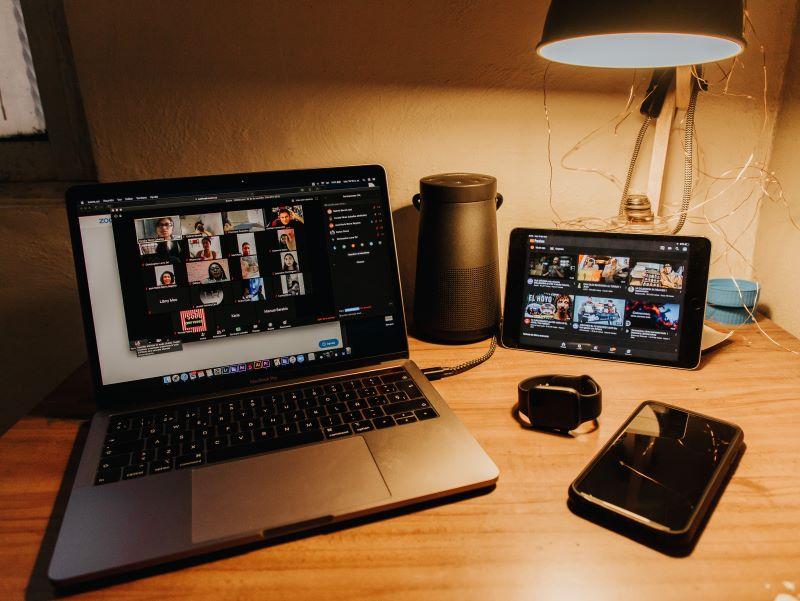
Enabling behavioural change for participants in an online setting
Narayan Pant describes how he adapted his leadership course to online and uncovered opportunities for intimate group learning, deep reflection and flexibility that can serve learners long after the pandemic
_1.jpg?itok=cNYz4f0E)
You may also like
Popular resources
Much has been written about schools managing the shift to virtual teaching formats to maintain operations. I have witnessed a different story in which this transition has opened up potential new market opportunities that will last well beyond this crisis.
The course I teach, Leadership Excellence through Awareness and Practice (Leap), is a very specific programme directed at senior leaders who are looking to change something inside themselves – their inner game, so to speak. It’s a highly intimate experience – I think of it as a psychological intervention more than an education programme.
The programme is premised on the empirical observation that rarely do senior leaders not know what they should do, thus traditional programmes that sit them down and tell them what to do, potentially waste their time. More commonly, such leaders don’t always do what they know. Hence the programme’s purpose is to help leaders make the changes they implicitly know they should.
Rethinking the transformation: purpose
Helping leaders to bridge the knowing-doing gap is harder than it seems. It requires intimacy and sharing in small groups and one-to-one sessions.
We had to maintain this purpose in an online setting during the pandemic. Because the very nature of Leap is about creating psychological intimacy, sincerity and safety, it’s not a programme that can be delivered to larger groups because you are never going to get 25 people on a Zoom call talking about deeply personal matters. So we had to reconfigure the learning, dividing day-long sessions into smaller, shorter chunks with fewer participants.
But cutting down on synchronous time – the actual interactive class time with peers and faculty – meant that we faced other challenges. When you don’t have the luxury of eight or nine hours to interact, how do you determine the real issues facing individuals? And how do they adopt the mindset and self-knowledge to share and address these things?
Going global, ensuring access: process
We started by tackling the tricky matter of including participants from all over the world. We invite participants to do the deep work of psychological self-analysis before they join the interactive sessions – to spend asynchronous, guided time using frameworks we supply to pinpoint their needs and objectives.
I teach “virtual” Leap asynchronously by splitting the class into smaller groups. The results have been unexpected. We are seeing online Leap participants willing to go deeper, faster, sharing and opening up earlier in the programme. It ensures the intimacy and the psychological safety, a necessary prerequisite for behavioural change. But it also enables some groups to be engaged in intensive, short teaching sessions throughout the day when other groups may be at work or asleep, or engaged in a group assignment or watching asynchronous video content or exercises.
The participant’s experience of the programme begins with asynchronous work – on exercises and video viewings. Then, a group of six may spend time with a professor in reviewing their responses to the exercises and getting feedback. Simultaneously, other groups carry on with their daily work. This works well when many participants work from home as they have the necessary privacy to step into the programme when it is their turn.
Realistic efficiency
We also adopted a bare bones approach to some learning content. Using means at hand, such as a smartphone, to record conversations, interviews and sessions on-site, we created a warm, non-techie feel while cutting content production fixed costs by 75 per cent.
What’s more, I was able to teach the entire programme from home – my LAN connection helped greatly. This made me feel more connected to participants who were in their own homes, aside from being highly convenient when the programmes run either late at night or early in the morning.
What we have seen is that there is latent demand out there. Even before the pandemic, there were many executives interested in taking a programme such as Leap but who could not commit the time or the cost of travel necessary to attend. That has now changed, along with travel restrictions and new online habits many didn’t have before the pandemic.
We have discovered that there’s an under-served and untapped market segment. We have a value proposition for people who want high touch value and would benefit from the programme but cannot come to campus and need to fit learning around their busy lives. We hope to keep running virtual programmes like Leap long after the crisis is over.
Narayan Pant, professor of management practice and the Raoul de Vitry d’Avaucourt chaired professor of leadership development at INSEAD.



Comments (0)
or in order to add a comment